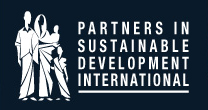INTERNATIONAL DAY FOR THE ERADICATION OF POVERTY
“Ending Persistent Poverty, Respecting all People and our Planet”
Through a resolution adopted on December 22, 1992, the UN General Assembly declared October 17 as the International Day for the Eradication of Poverty. They proclaimed that poverty is a violation of human rights and affirmed the need to come together to ensure that these rights are respected. Since then, people of all backgrounds, beliefs and social origins have gathered every year on October 17th to renew their commitment and show their solidarity with the poor.
The COVID-19 pandemic that gripped the world during the past year has resulted in reversing decades of progress in the fight against poverty and extreme poverty. According to the World Bank, between 88 and 115 million people are being pushed into poverty as a result of the crisis, with the majority of the new extreme poor being found in South Asian and Sub-Saharan countries where poverty rates are already high. In 2021, this number is expected to have risen to between 143 and 163 million. These ‘new poor’ will join the ranks of the 1.3 billion people already living in multidimensional and persistent poverty who saw their pre-existing deprivations aggravated during the global pandemic. As a matter of fact, the measures imposed to limit the spread of the pandemic often further pushed them into poverty – the informal economy which enables many people in poverty to survive was virtually shut down in many countries.
As we embark on the post-COVID recovery and getting back on track with the Sustainable Development Goals, many are talking of “building back better,” but the message is clear from the people living in extreme poverty that they do not want a return to the past nor to build back to what it was before. They do not want a return to the endemic structural disadvantages and inequalities. Instead, people living in poverty propose to build forward.
Building forward means transforming our relationship with nature, dismantling structures of discrimination that disadvantage people in poverty and building on the moral and legal framework of human rights that places human dignity at the heart of policy and action. Building forward means not only that no one is left behind, but that people living in poverty are actively encouraged and supported to be in the front, engaging in informed and meaningful participation in decision-making processes that directly affect their lives. In building forward, we need to let ourselves be enriched by the wealth of wisdom, energy and resourcefulness that people living in poverty can contribute to our communities, our societies and ultimately to our planet.
In a world characterized by an unprecedented level of economic development, technological means and financial resources, that millions of persons are living in extreme poverty is a moral outrage. Poverty is not solely an economic issue, but rather a multidimensional phenomenon that encompasses a lack of both income and the basic capabilities to live in dignity.
Persons living in poverty experience many interrelated and mutually reinforcing deprivations that prevent them from realizing their rights and perpetuate their poverty, including:
dangerous work conditions
unsafe housing
lack of nutritious food
unequal access to justice
lack of political power
limited access to health care
October 17 presents an opportunity to acknowledge the effort and struggle of people living in poverty, a chance for them to make their concerns heard, and a moment to recognize that poor people are the first ones to fight against poverty. Participation of the poor themselves has been at the center of the Day's celebration since its very beginning.
All people must come together to end poverty and discrimination in order to build a sustainable future in which the needs of the present are met without compromising the ability of future generations to meet their own needs.
We at PSDI are grateful for the opportunity to serve the poor in Bangladesh in a way allows them to lift themselves out of extreme poverty and offer their family hope for a better future.
Article is an excerpt taken from the United Nations website.
